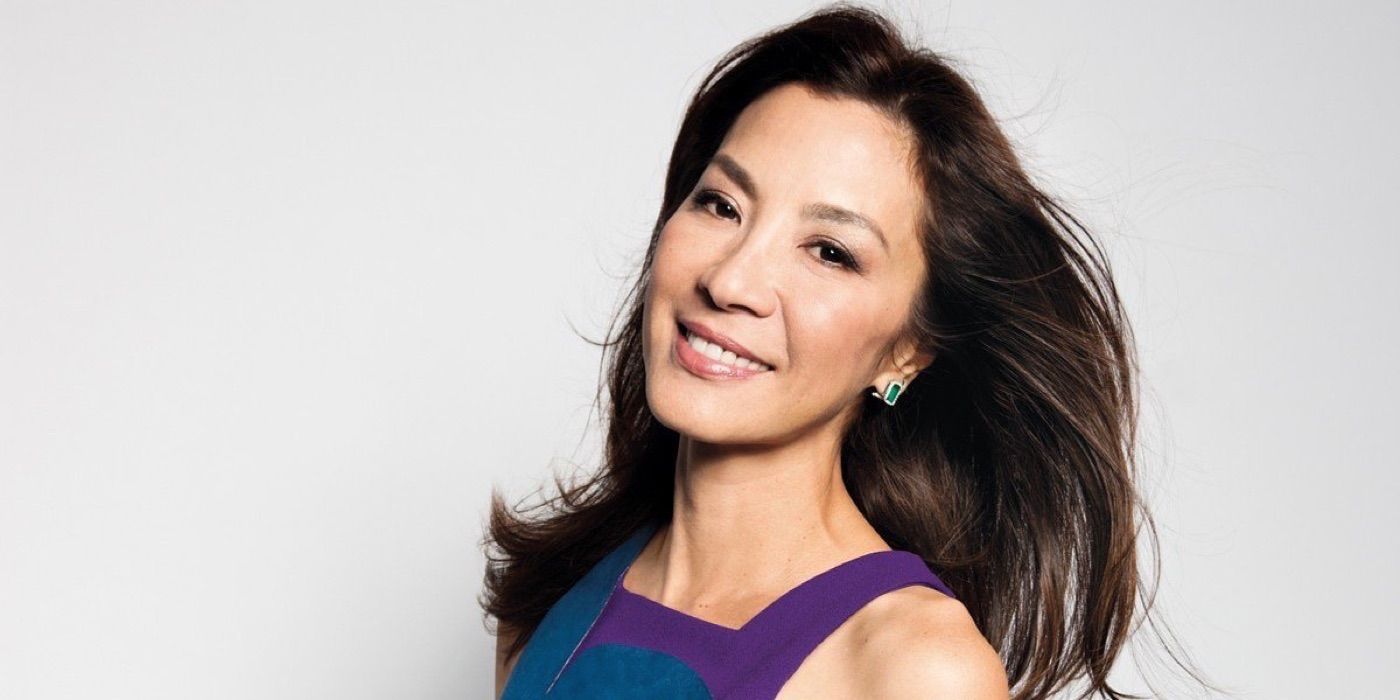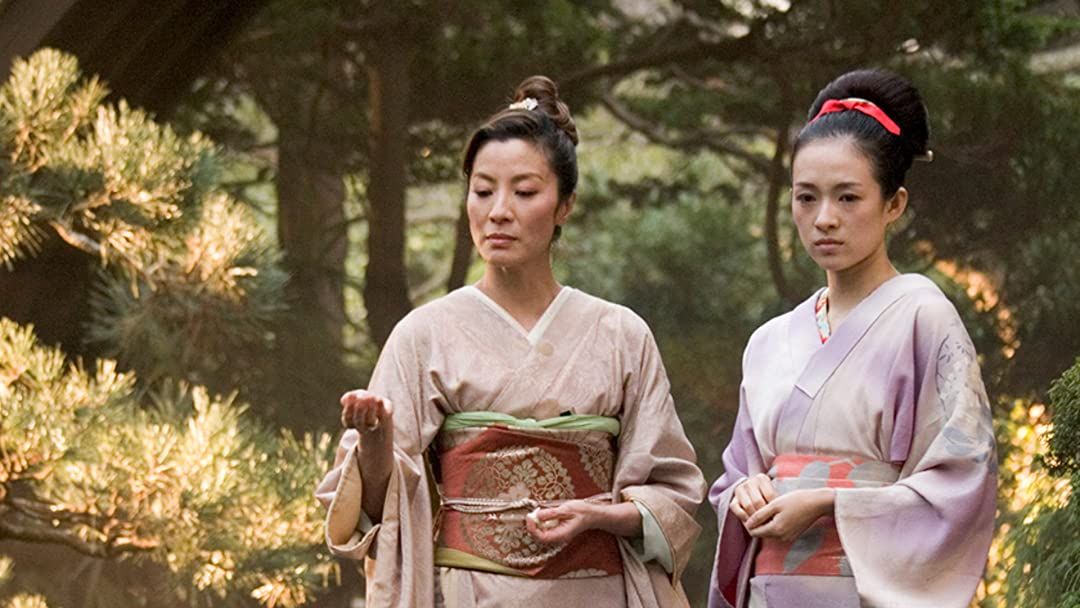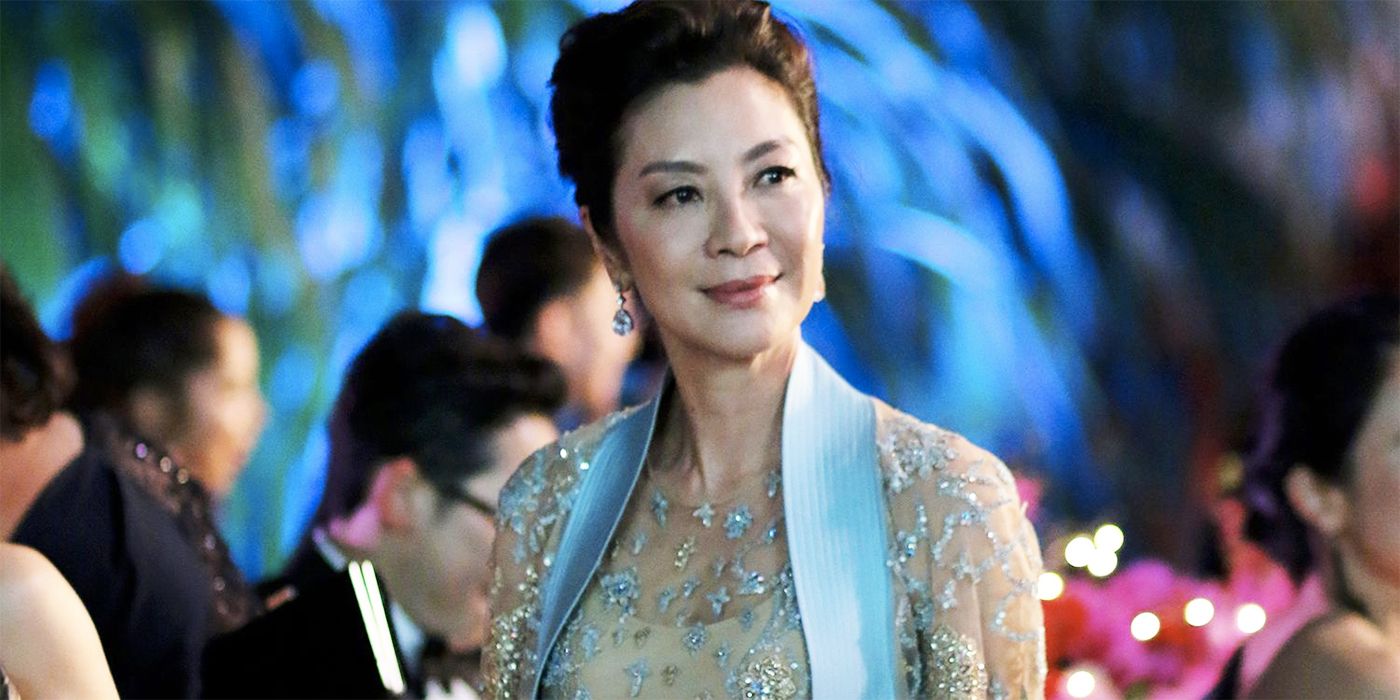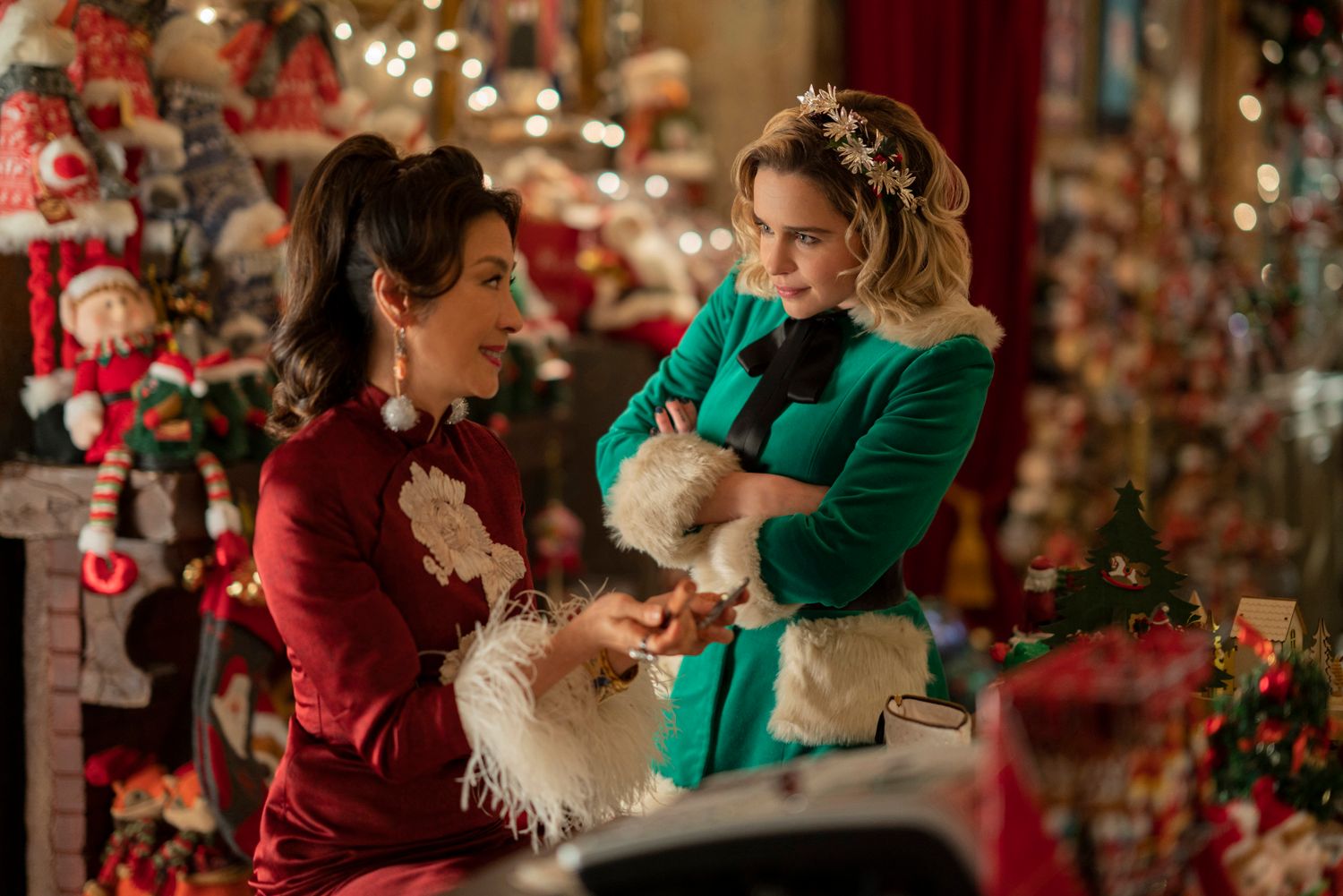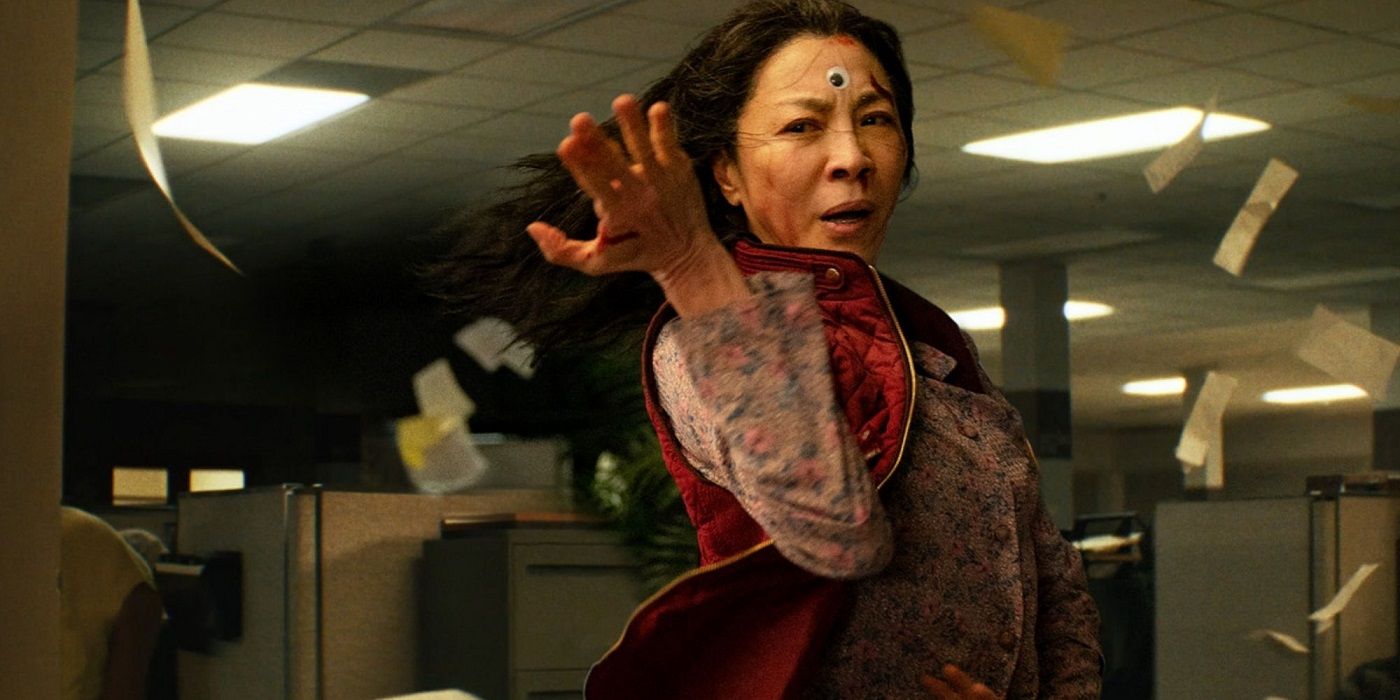When Michelle Yeoh won a Golden Globe for her role in Everything Everywhere All at Once, she told the ceremony’s producers to shut up when they tried to cut off her victory speech. “I can beat you up, okay?” Nobody doubted the 60-year-old screen veteran, as she’d established herself in Hong Kong as a premier martial arts star and hasn't slowed down since. Her career has spanned the globe, and included peaks like Police Story 3 and Crouching Tiger, Hidden Dragon, the Ang Lee epic whose title refers to the clandestine nature of kung fu masters. Even when Yeoh’s own gifts are obscured by a non-action role, she’s still badass.
Memoirs of a Geisha is a perfect example, being Yeoh’s first non-action role in America. She’s paired once again with her Crouching Tiger costar Zhang Ziyi as even more of a mentor figure. In that film, their characters eventually came to blows, and unfortunately, their relationship had far more chemistry than what they have in Memoirs. The key difference between the two movies is context. Crouching Tiger, Hidden Dragon saw a Taiwanese filmmaker (Ang Lee) invoke a Chinese film tradition while Geisha is a Hollywood movie based on a controversial American novel about Japanese culture, starring non-Japanese actresses. When it doesn’t matter that Michelle Yeoh is, in fact, Malaysian, suddenly, other details start to fall away, too.
Michelle Yeoh Elevates a Bad Movie
This film entitled Memoirs of a Geisha never accesses the mind of its heroine Chiyo (Ziyi). We’re told that she’s in love, but what does she think about the life of a geisha, or about the culture? Does she think at all? Only in contrast to Chiyo and the other bickering geishas does Yeoh’s character Mameha seem full of wisdom. She trains Chiyo in the proper dress and decorum, as well as how to comport oneself in a man’s world. The slobbering clients have their absurdity mirrored, bouncing off Mameha’s steely resolve. She never forfeits her authority, and her every movement feels appropriately graceful and choreographed. While Zhang Ziyi’s performance traces the growth of a student, Yeoh has to embody a lived-in comfort with the geisha ways from the start.
Her entrance into the film is heralded first by voice-over — “a most unexpected visitor” — after which one of the less sympathetic characters croaks, “Why is she here?” The music crescendos and then stops in time for her reveal behind an umbrella. By now, filmmakers know to respect Michelle Yeoh, as this compromised production surely attests. More accurately, filmmakers know to call Michelle Yeoh when they’re casting a character who commands respect with her very presence. When speaking to other characters, she keeps her eyes down until she matches her audience’s gaze for emphasis, with a smile. And when she’s captured someone inside that gaze, it’s quite intense.
Michelle Yeoh and Hollywood’s Big Asia Moment
Her approach to mentorship is at once sharp and full of compliments. She tells Chiyo not to stand “like a horse,” and her straightforward deliveries make the more encouraging words feel earned. This wouldn’t be the last time Yeoh played an authority figure in a younger woman’s life, and in Crazy Rich Asians, she was the ultimate authority figure – a Chinese mother. Now, the “tiger mom” or “dragon lady” is certainly a stereotype, but by 2018, Hollywood had come a long way from Memoirs. Michelle Yeoh plays Eleanor Young, the wealthy mother of Nick (Henry Golding), who’s arrived in Singapore for a wedding with his new girlfriend, the Chinese-American Rachel Chu (Constance Wu). Being that Rachel is the protagonist, Yeoh’s taken on the rare villainous role as a prospective mother-in-law seemingly impossible to please.
Eleanor may not know martial arts like so many of Yeoh’s other characters, and she couldn’t possibly perform any moves in those fitted, dignified dresses, but she’s nevertheless threatening even when sitting down. She bristles with hatred upon her first encounter with Rachel, smiling through gritted teeth and issuing only subtle put-downs. When Rachel turns away, she tells Nick, “She hates me.” This is the way of polite society, and yet, Eleanor stands out from her gossiping friends and family. Her manner of speaking, in which answers are sometimes delayed, perhaps to encourage self-doubt in the asker, has the weight of ancient authority. Before telling Rachel that “You will never be enough,” she explains her own difficulty with acceptance into the family. This particular put-down isn’t a personal opinion, she’s speaking from a place of experience and having made peace with something greater.
In response, Rachel has to harden to survive. This is what Eleanor does to people. During the wedding reception, she narrows her eyes at a couple dancing inappropriately and tells someone to “take care of that.” She’s a mafia don! This era of Michelle Yeoh’s career is coinciding with an emergence of Asian-American film and television, and an early story like Crazy Rich Asians may require she embodies an archetype. However, Eleanor is no caricature. The later movements of the film demonstrate that she can be wounded, and Yeoh showcases these layers with a deeply human vulnerability. Overall, it’s such an entertaining performance, the dramatic anchor in what’s mostly a lighthearted comedy.
Michelle Yeoh: Comedian?
Yeoh’s first true comedic role was quick to follow in 2019, with Last Christmas. This is a romantic comedy that didn’t fare well with critics, but also doesn’t feel like it was made for people who take movies super seriously. It violates basic tenets of film storytelling in service of a crowd-pleasing tale. Notably, it’s the rare mainstream romcom to feature an Asian male lead, making this the ideal next step for costar Henry Golding. We had the one where he’s Asian and it mattered, now here’s the one where he’s Asian and it doesn’t matter. But this is Emilia Clarke’s show, and she’s superb as a motor-mouth loser who’s slightly cleverer than her station in life would suggest. She works at a year-round Christmas shop, dressed up as an elf and selling mysterious trinkets, and her boss is a woman named Santa (Yeoh).
Santa’s first appearance comes locked and loaded with criticisms, but unlike with Rachel, this is a case of “no lies detected.” If martial arts choreography is all about timing, Yeoh is a natural with comedy, perfecting deadpan deliveries of lines like, “Get to work, elf,” or “Get off the phone now! Time to sparkle!” And yet, she isn’t wholly unpleasant with Kate. She accesses that vulnerable side after Kate’s irresponsibility leads to the store’s robbery with “Clean up your mess, you stupid, stupid girl.” It’s a surprising dimensionality to what could’ve been a one-note character, a woman dedicated to such a bizarre store, and the sincerity helps with later laughs. Maybe the best moment in the film comes when Santa, as part of her own romance subplot, is face-to-face with her potential paramour and says, “Have you come back for the gibbon?” with a breathless, starry-eyed hope. Only Michelle Yeoh could do that.
Michelle Yeoh is an Asian-American Icon
Granted, there may be something untoward going on in Last Christmas. Kate attributes Santa’s stoicism to her Asian heritage, or notes that because she’s Chinese, she has “access to really freaky outlets,” hence the store’s unusual items. In a film set in the UK against the backdrop of Brexit, this could be read as a kind of liberal post-racism. It’s almost like a wink at the audience: “We all know these stereotypes don’t really apply to Michelle, because we all know Michelle,” tapping into a collective understanding of the actress, but one irrevocably informed by less-than-ideal roles. Mameha, for one. And she’s arguably a stereotype in Crazy Rich Asians — the better for deconstruction — and again in Last Christmas. Is it actually possible for an Asian woman in Hollywood who knows martial arts to play a character who isn’t, in some way, stereotypical? In this case, she’d have to betray what makes her Michelle Yeoh.
Quick, what’s Michelle Yeoh’s best performance? Prior to her award-winning turn as Evelyn in Everything Everywhere All at Once, practitioners of Google fu might eventually say, “Aung San Suu Kyi, The Lady!” That kind of role is like catnip to actors and awards bodies. And for sure, it’s a good performance, but frankly, it’s a boring pick. It’s not quintessential Yeoh; it doesn’t represent the enormous spectrum of her talents. This is why a term like “badass” comes in handy. Meaning something different to everyone, its vagaries allow overlap and, paradoxically, consensus. In each of these three performances, Yeoh is totally badass — without beating anybody up. Just as she’s leveraging a self-confidence built up by action roles, these movies play with the resulting persona. After that fateful Golden Globes, Catherine Ceniza Choy described the moment to NBC News like a clarion call for Asian-American women. Michelle Yeoh demanded respect with the same voice that shook Chiyo and Rachel and Kate, as well as moviegoers everywhere.

